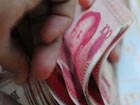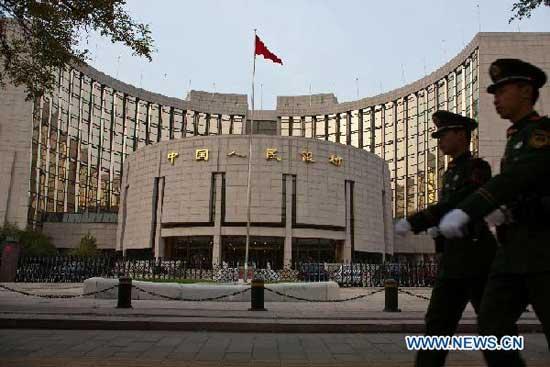| Videos | • Latest |
|
• Feature | • Sports | • Your Videos |
PBOC cuts RRR 50 basis points

 0 Comment(s)
0 Comment(s) Print
Print E-mail
CNTV, December 1, 2011
E-mail
CNTV, December 1, 2011
China's central bank has announced a 50 basis point cut of banks' reserve requirement ratio, effective December 5th. This is the first such move by the People's Bank of China in nearly three years. Analysts say the move signals that the government is set to stabilize economic growth after easing inflationary pressures. But it remains unknown if the change will bring about a full-on move toward a looser monetary policy. Jenny Lin has more details.
 |
|
The People's Bank of China, the country's central bank, announced Wednesday on its website that it will lower the bank reserve requirement ratio (RRR) by 0.5 of a percentage point as from Dec. 5, 2011. [Xinhua] |
The latest cut drops the deposit reserve requirement ratio to 21 percent for large commercial banks and 17.5 percent for mid- and small-sized banks. An estimated 396 billion yuan in capital will be released into the market.
Analysts say the move by the People's Bank of China will help ease a credit cruch facing Chinese banks, promote reasonable growth in banking loans and stabilize economic growth.
Data from the People's Bank of China indicates yuan funds stemming from foreign exchanges dropped by nearly 25 billion yuan month-on-month in October, the first decrease in nearly four years.
PBOC data also shows household deposits fell by over 727 billion yuan in October, indicating that there is less capital available to banks.
The central bank has implemented a raft of measures to ease credit controls, including encouraging the banking industry to increase lending to small- sized enterprises and ensuring sufficient funds for ongoing national projects.
Last week, the PBOC rolled back RRRs for six rural banks in east China's Zhejiang Province to 16 percent from 16.5 percent.
Meanwhile, as government tightening measures gradually take effect and international commodity prices decline, consumer prices have eased in recent months, making it possible to fine-tune China's monetary policy.
The National Bureau of Statistics reported a 5.5 percent increase in the Consumer Price Index in October, dropping from a 37-month high of 6.5 percent in July.
China has made stabilizing prices a top priority this year. To rein in runaway inflation, the PBOC has hiked banks' RRR six times and the benchmark interest rate three times this year. But in its third quarter monetary policy report, the PBOC said it will fine-tune its policies as needed. It did not list keeping stabilizing prices as a priority, which may indicate that the central bank is giving more weight to driving economic growth than easing inflationary pressures.






Go to Forum >>0 Comment(s)